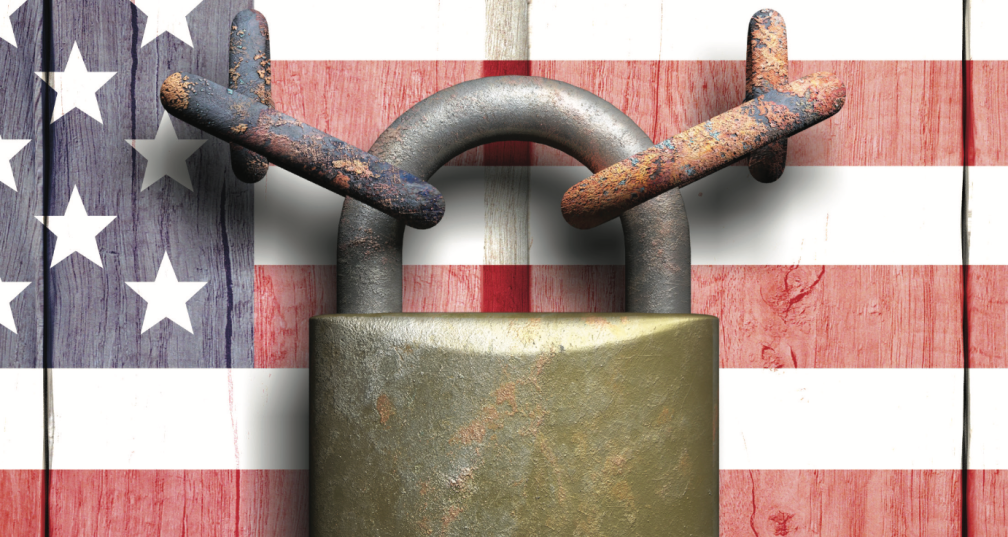Floodwaters surged in. No big deal – the island had seen its share of hurricanes before. But this time, something was different.
The flood waters didn’t stop. They submerged houses, knocked out power, and still, they didn’t stop – consuming everything in their path.
And that was only the beginning. Even surviving the storm was no guarantee that you would survive the storm.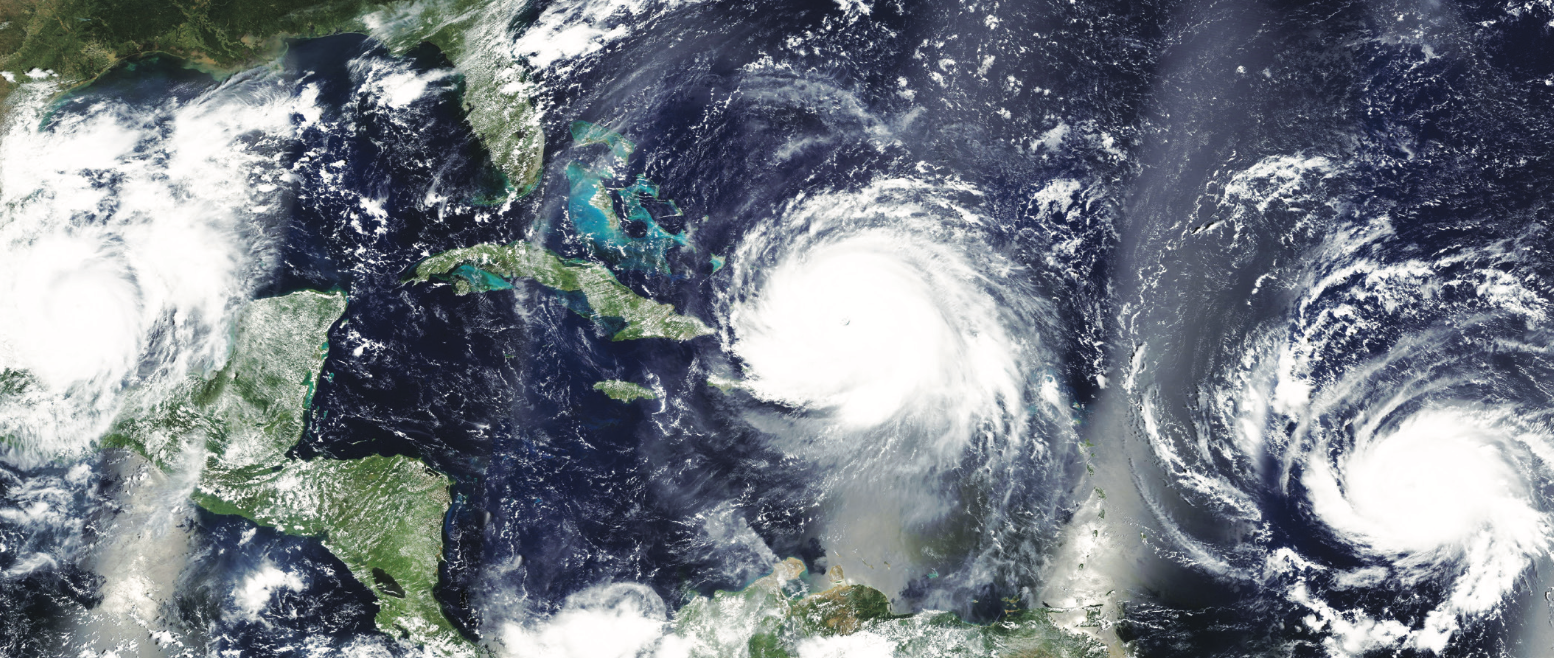
The U.S. Department of Housing and Urban Development is a government agency tasked with the unique responsibility of ensuring that Americans have a chance at achieving the dream of homeownership.
In order to do so, HUD often works toward strengthening the housing market by supporting the economy and protecting the needs and wants of homeowners. This ensures that homes are not only affordable but serve as a platform for improving homeowners’ quality of life.
However, HUD’s objectives are sometimes distributed by factors ranging from politics, socio-economic disparities and even natural disasters. When American homeowners fall victim to any of these elements, HUD is not only there to offer a helping hand, but often serves as the tool that leads to recovery. This was especially so for the island of Puerto Rico.
In 2017, a wake of natural disasters struck, reducing infrastructure to ruble, claiming the lives of thousands and deeply weakening local economies across the globe. And while many markets struggled to recover from these environmental headwinds, Puerto Rico’s journey was especially challenging.
In the late evening of September 18, 2017, the island of more than three million people faced the violent winds and waves of one of the most catastrophic storms in Puerto Rican history. When all was said and done, Hurricane Maria indiscriminately killed more than three thousand people, decimated 80% of the island’s homes and uprooted virtually every powerline.
The damage of the Category 5 storm was so immense that aid was not only sought after, but widely recognized as a necessity. While several countries and organizations in the international community immediately allocated funds towards Puerto Rico’s recovery, the United States’ initial response was lethargic. This was especially surprising as the Caribbean island has been a United States territory since the late nineteen-hundreds.
The negligence of the United States federal government further worsened a humanitarian crisis that left survivors in desperate need of food, water, electricity and shelter. For the weeks following the storm, President Donald Trump denied the abundancy of devastation, even claiming the reported death toll was much too high. This rhetoric was partly responsible for the slowdown in federal aid, which resulted in both national and international outrage.
 While United States recovery efforts seemed amiss, several leaders in the federal government advocated on the behalf of Puerto Rico. One leader specifically, HUD Deputy Secretary Pamela Hughes Patenaude, the second-in-command at the department, went to bat for the struggling nation.
While United States recovery efforts seemed amiss, several leaders in the federal government advocated on the behalf of Puerto Rico. One leader specifically, HUD Deputy Secretary Pamela Hughes Patenaude, the second-in-command at the department, went to bat for the struggling nation.
Patenaude originally joined the agency in 1982 as an intern, eventually leaving to pursue a degree in criminal justice. Fortunately, she returned after being given the opportunity to work in HUD’s Inspector General’s Office. This is when Patenaude realized her true passion lay in housing reform. The rest was history. In 2017, Patenaude ascended to the position of Deputy Secretary, making affordable and safe housing her mission.
As Deputy Secretary of HUD, it was Patenaud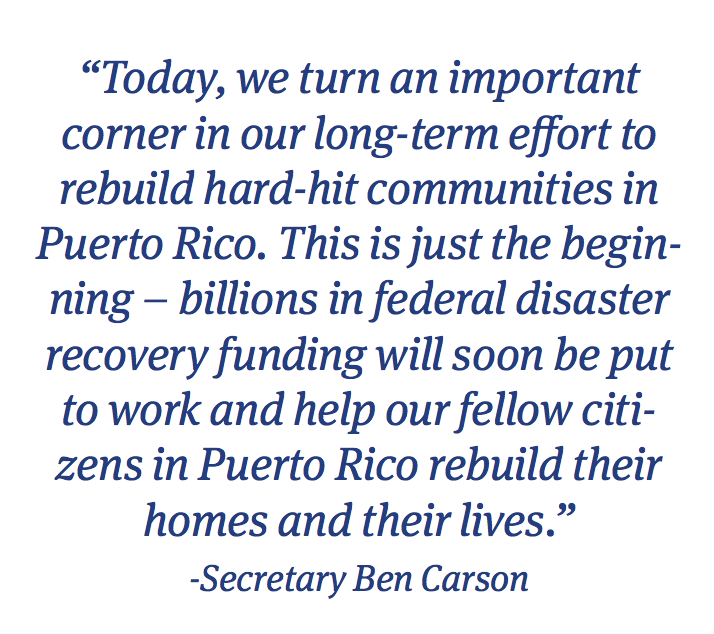 e’s responsibility to bring hope to Puerto Rico’s 117,000 FHA-backed homeowners. A feat that was both large and challenging. However, despite these concerns, Patenaude worked diligently to secure funds for the nation.
e’s responsibility to bring hope to Puerto Rico’s 117,000 FHA-backed homeowners. A feat that was both large and challenging. However, despite these concerns, Patenaude worked diligently to secure funds for the nation.
On the quest to housing recovery, Patenaude was met with resistance from the Trump administration, as it was reported that the president wanted Puerto Rico’s funds to be directed toward Texas and Florida, which were also the victims of large natural disasters. Instead, Patenaude reminded the President that Congress had appropriated the money for the island.
In fact, by July 2018, HUD Secretary Ben Carson announced the department approved a $1.5 billion disaster recovery plan aimed at helping Puerto Rican citizens recover from Hurricane Irma and Maria. HUD’s plan focused primarily on the restoration of damaged and destroyed homes, businesses and infrastructure.
“Today, we turn an important corner in our long-term effort to rebuild hard-hit communities in Puerto Rico,” HUD Secretary Ben Carson said in a statement. “This is just the beginning – billions in federal disaster recovery funding will soon be put to work and help our fellow citizens in Puerto Rico rebuild their homes and their lives.”
A year prior to this announcement, President Trump signed the Additional Supplemental Appropriations for Disaster Relief Requirements Act, which appropriated $7.4 billion in CDBG-DR funding for major disasters declared in 2017.
This was followed by the $1.5 billion grant in February 2018, which was raised to “address the serious unmet needs on the island,” and a $18.5 billion grant in April of that year, to further support recovery in Puerto Rico. These funds, paired with Patenaude’s disaster recovery plan, were set to drastically improve Puerto Rico’s rehabilitative standing.
In a podcast interview with HousingWire Editor-in-Chief Jacob Gaffney, Patenaude explained how career experience prepared her to lead recovery efforts at HUD.
“I was fortunately serving in a position that was very involved in disaster recovery, I was the assistant secretary for community planning and development when Hurricane Katrina, Wilma and Rita struck,” Patenaude said. “At the time those were the most devastating disasters HUD had ever been faced with, and certainly the amount of housing stock that was damaged at the time was catastrophic.”
Luckily, Patenaude was working in a policy making position during these storms, which better positioned her for taking office as HUD’s deputy secretary in 2017.
“Last September, both hurricane Irma and Harvey hit, and two days after my swearing in we were faced with Hurricane Maria,” Patenaude said. “The devastation that I witnessed…it is hard to even comprehend what people have to go through.”
 And witness it she did. Patenaude did not simply send funds to the island from her office in the U.S. In fact, the deputy secretary visited the island several times. Photos on social media even show her inside the homes of some of the disaster victims as she sought to understand the full scope of the disaster.
And witness it she did. Patenaude did not simply send funds to the island from her office in the U.S. In fact, the deputy secretary visited the island several times. Photos on social media even show her inside the homes of some of the disaster victims as she sought to understand the full scope of the disaster.
“We often talk about vulnerable populations; these people have been hit by a natural disaster and are often starting all over again. HUD plays an enormous role in disaster recovery, we are focused on long term, but we play a huge support role behind FEMA and the immediate after math behind a disaster.”
One of these roles included making sure money appropriated from Congress ensured Puerto Ricans rebuilt homes that stood a chance against future natural disasters.
“Congress appropriated a lot of money for resiliency and mitigation, that way when we rebuild both infrastructure and brick and mortar houses, they are done in a way that will be able to sustain hurricanes and natural disasters in the future,” Patenaude said. “We’ve come a long way from Katrina, we have learned a lot from the mistakes we have made.”
And Patenaude’s career has come a long way, that is why so many were surprised when news of her departure from the agency made headlines in 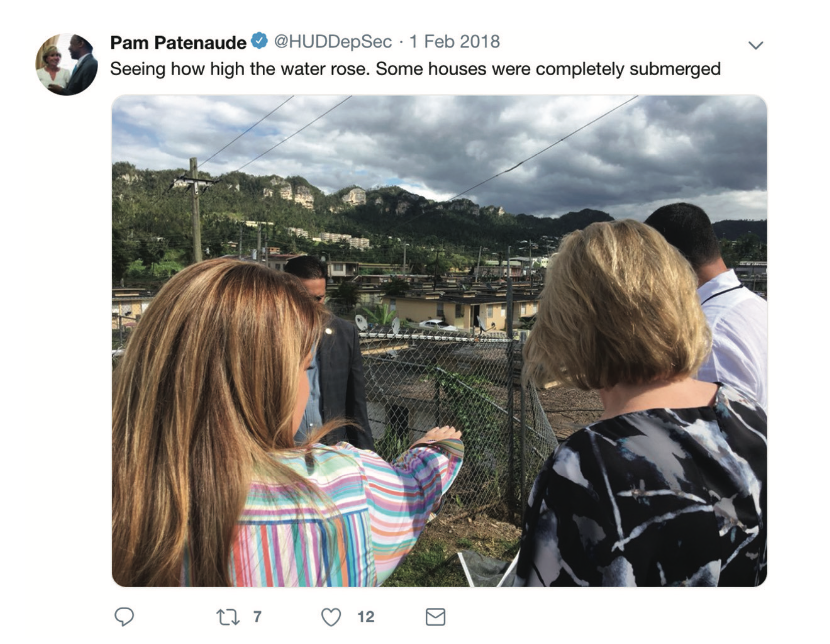 December 2017.
December 2017.
“It has been my honor to serve President Trump and Secretary Carson and I am deeply grateful to both for this opportunity,” her resignation letter stated. “Thank you to my HUD family and fellow ‘housers’ for helping Americans access decent, safe and affordable housing.”
In an email to HousingWire, Carson thanked Patenaude for her years of service, for advancing HUD’s mission during her tenure.
“On behalf of a grateful agency, and the families and communities we serve, I want to thank her for her tremendous contributions to advancing HUD’s mission,” Carson said. “She led HUD’s largest disaster recovery response after unprecedented storms and fires damaged communities across the country. She is a true public servant, and I wish her well as she returns to private life in New Hampshire.”
Although, Patenaude’s presence with the agency will be missed, her legacy lives on in the communities she has helped, and the peers she has inspired. One of those peers includes Anna Maria Farias who, like Patenaude, has a strong interest in providing struggling Americans safe and affordable housing.
Farias also sat down with HousingWire’s editor-in-chief to discuss her role at HUD, and the circumstances that inspired her to take action.
“I grew up in the housing projects, I am one of those children that was helped by fair housing,” Farias said. “My mom was a cleaning lady earning between $12 and $20 a week, working six days a week and working a lot afternoon and Sundays to make ends meet. I am a child of a single parent and I made it. My mom said go to school or you are going to be doing what I am doing. So, I was very blessed and became valedictorian, and that was my ticket out of the housing projects. But I never forgot where I came from.”
And Farias did not forget, as one fateful call not only changed the trajectory of her career, but brought her back to where it all began.
One day in 1991, Farias’ mother called to tell her about the shifting dynamics of her hometown, a city that was now being overrun by poverty, drugs and violence. Farias decided the best way to combat these issues was facing them head on, and by the end of the year she had resettled in the community, this time as one of the first executive directors in the country to live in fair housing.
“I did the one thing I said I would never do, and that’s go back home to a small town,” Farias said. “And I did, and I ran the housing authority of where I grew up, but I also became one of the first exec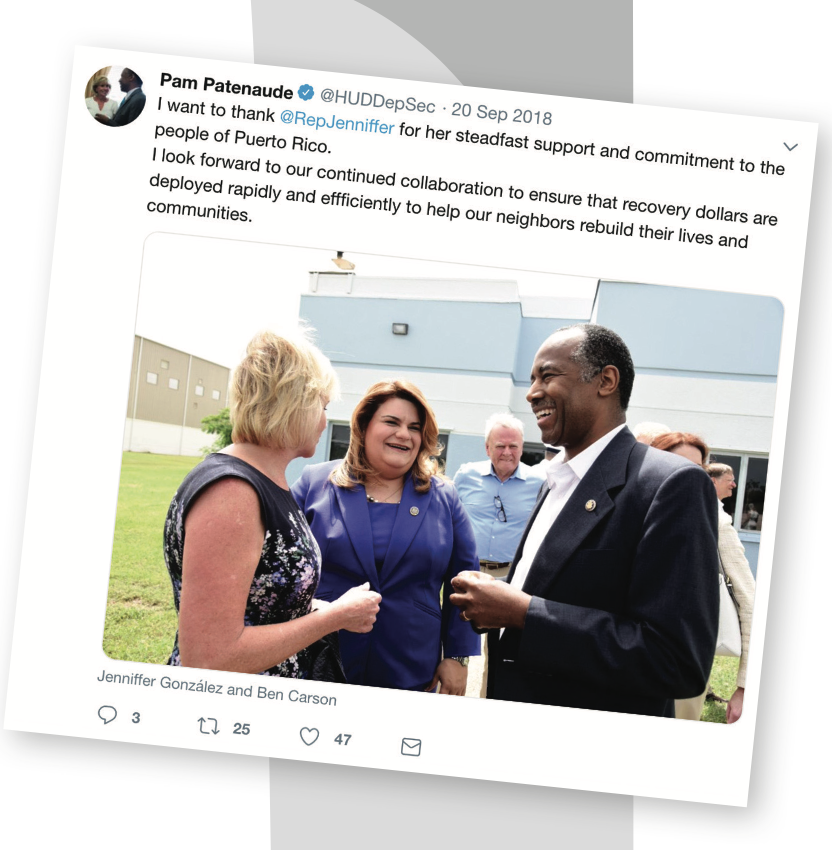 utive directors in the country that agreed to live in the housing projects.”
utive directors in the country that agreed to live in the housing projects.”
While HUD may often face difficulties as it struggles to fulfil its mission – from lack of funds to even pushback from the administrations it serves under, Americans can rest assured that there are those on the inside such as Patenaude, Farias and many others, who are fighting for safe, affordable housing.
Some, like Patenaude, will eventually move on, but their legacy will not. We can only hope that that legacy is picked up by those left behind, as the torch is passed from one leader to the next. The next time disaster strikes, such as the hurricanes Katrina, Harvey, Maria or so many others, there will be someone new making the calls and fighting for the disaster aid.
These next leaders will have the opportunity, like Patenaude, to fight for those who need it most, for those that don’t have a voice. And when that time comes the legacy of past leaders will live on. As Patenaude’s actions are remembered, it will encourage the next generation of leaders to take a stand.
And Patenaude has made it clear she believes HUD is in good hands.
“Working with Secretary Carson has been an extraordinary experience,” she said. “I’ve worked with four HUD secretaries, and they’ve all been great, but with Secretary Carson there’s something special.”




